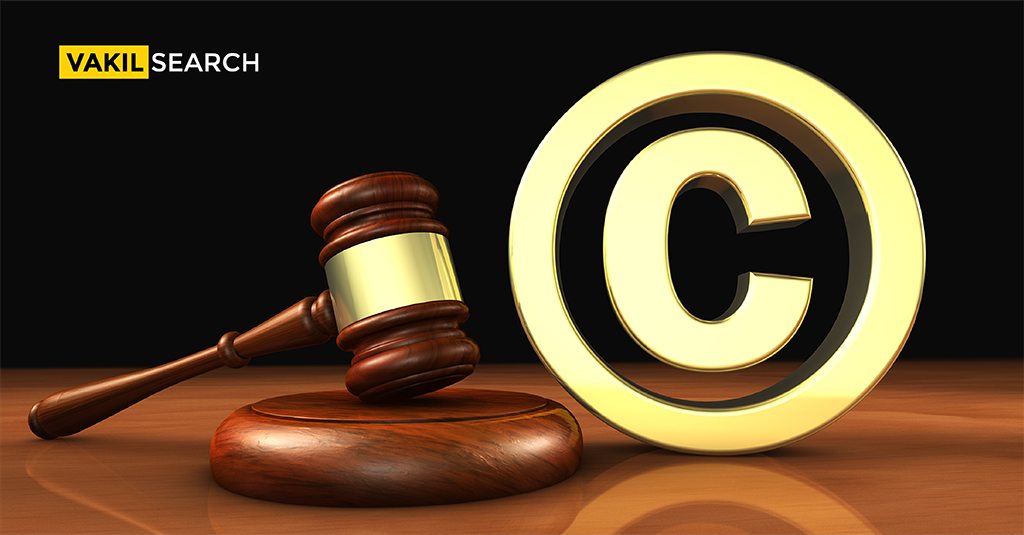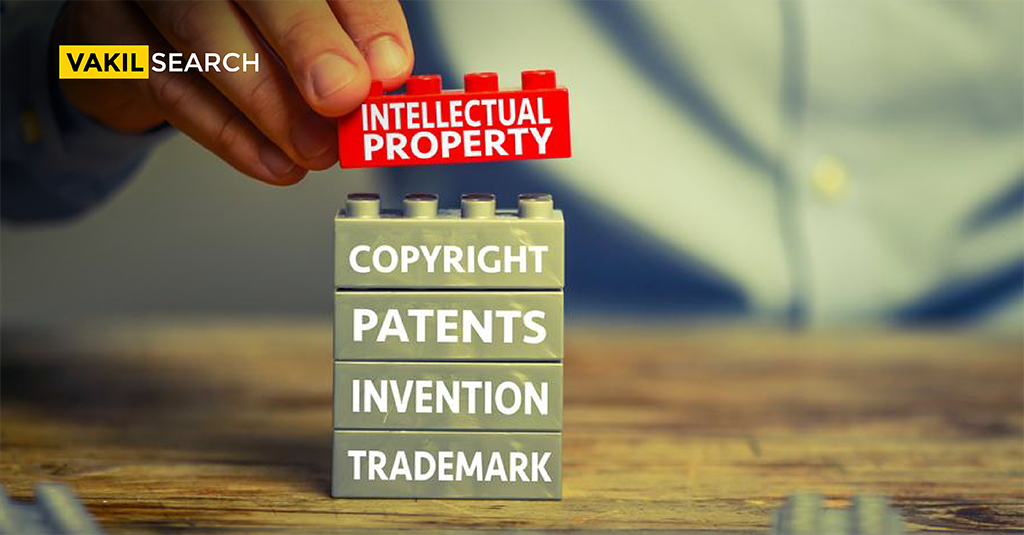Intellectual property rights help businesses and individuals protect the creations of the human mind by providing creators exclusive rights to such content. These rights are vital tools that help businesses build a brand name for themselves.
Overview:
Intellectual property rights are the legal rights that help individuals protect the creations of the human intellect. It involves various legal tools that help in providing creators exclusive rights to their content.
As per the International Convention for the Protection of Industrial Property, there are primarily three types of intellectual property rights. Intellectual property can mean several things in today’s world, where creations of the mind are intangible assets to companies. In this context, what are the laws regarding intellectual property rights in India? This article will define intellectual property rights and discuss their importance in India.
IP Rights: Definition
We define Intellectual Property Patenting as a set of legal rights that help Content Creators Protect their idea or products and gain exclusive usage rights. Over the years, the Paris Convention has broadened its definition of industrial products to encompass all such creations. Additionally, the convention now protects the following industrial products through IPR legislation.
- Utility models
- Industrial designs
- Trademarks and Service Marks
- Copyrights
- Geographical indicators
- Layout designs
- Confidential information
The Trade-related Aspects of the Intellectual Property Rights Agreement, better known as TRIPS, helped make IPR more comprehensive and organised. It included several conventions and agreements that help in protecting IPR in WTO member countries. Likewise, as per this agreement, intellectual property rights include the following rights of;
- Copyright and other related rights
- Musicians, painters, sculptors, artists, authors and photographers to copyright their works
- Software in source and object code and right of engineers on their integrated circuits and layout design
- Performers and creators of phonograms on their creative products
- Traders on their trademarks
- Manufacturers and producers on geographical indicators for their products
- Designers for distinctive designs
- Scientists, inventors, plant breeders, farmers and others to Patent their products
- Biological diversity
- Businesspeople to protect their secret information
3 Types Of Intellectual Property (IP) Rights
-
Copyrights:
Copyright refers to an individual’s exclusive right to produce, reproduce, promote, and sell their original work. In most instances, such works are musical, literary, artistic, architectural, or dramatic. Additionally, literary work may include those of an electronic nature, such as programs, compilations, databases, and tables. Moreover, the primary aim of registering a copyright is to ensure that such original works are not misrepresented or misused by copycats. The following international laws help in protecting copyrights.

-
- Universal Copyright Convention
- Geneva Treaty on International Registration of Audio-Visual Works, 1992
- WIPO Copyright Treaty, 1996
- WIPO Performance and Phonograms Treaty, 1996
- Berne Convention – Protection of Literary and Artistic Works, 1971
- Rome Convention – Protection of Performers, Producers of Phonograms and Broadcasting Organisations, 1961,
- World Intellectual Property Organization (WIPO) Convention
-
Trademarks:
A trademark is any name, symbol, or logo that helps consumers differentiate a product from its competitors. They are an integral part of branding as they help companies stay unique and recognisable. Trademark registration is vital because it helps companies build a brand image for themselves. Additionally, having a registered trademark allows the owner to use, promote, and market goodwill associated with the mark. Additionally, it also helps in preventing trademark infringement and maintaining customer loyalty. Registering a trademark in India offers the following benefits;

-
- Helps businesses protect something that enables consumers to identify their products
- Improves the company’s brand image and trustworthiness
- Further, makes it easier to expand into new markets
- Serves as a vital product differentiator
- Protects business owners from copycats and aids in litigation
- Provides a monopoly to the trademark holder by debarring others from using it
- Produces a positive incentive effect leading to better business
The following international laws help in regulating and protecting trademarks rights around the world.
-
- International Registration of Marks, 1979
- Madrid Protocol concerning the international registration of marks, 1989
- Nice Agreement regarding International classification of goods and services, 1957
- Vienna Agreement – International Classification of the Figurative Elements of Marks, 1973
-
Patents:
Patents serve as rights granted to designers and inventors that prevent others from producing, promoting and selling the product for a specified time interval. The primary aim of patents is to incentivise inventors to come up with innovative products. The following international laws help in protecting patent rights around the world.

- Patent Cooperation Treaty, 1970
- European Patent Convention, 1973
- UPOV International Convention (Protection of New Varieties of Plants), 1991
What Are Some Examples of Violations of Intellectual Property?
Instances of intellectual property violations encompass a spectrum of activities that comprise the rights and exclusivity associated with creative and innovative works. Some notable examples of intellectual property violations include:
-
Trademark Infringement
Developing a logo or brand name intentionally designed to deceive consumers into believing they are purchasing products from the original brand. This can lead to confusion in the market and dilution of the genuine brand’s value.
-
Copyright Infringement
Illegally recording or reproducing videos, music, or other copyrighted materials without proper authorisation. This extends to unauthorised copying, distribution, or public performance, even for personal use, without the copyright holder’s consent.
-
Patent Counterfeiting
Copying someone else’s patented invention and presenting it as a novel creation to the market. This not only undermines the original inventor’s rights but also deceives consumers who may unknowingly purchase an imitation product.
Unauthorised Manufacturing of Patented Goods
Producing goods that are protected by a patent without obtaining the necessary license. This violation not only infringes on the patent holder’s rights but also undermines the exclusivity that patents provide to inventors.
Trade Secret Misappropriation
Unlawfully acquiring, using, or disclosing trade secrets belonging to another entity. This can involve the theft of confidential information, such as formulas, processes, or business strategies, which are crucial to a company’s competitive advantage.
Counterfeiting Software or Digital Products
Replicating software, apps, or other digital products without proper authorisation. This includes distributing counterfeit copies or using unauthorised versions, leading to revenue loss for the original creators.
Domain Name Squatting
Registering domain names that closely resemble established trademarks or brand names with the intent of selling them to the rightful owners at an inflated price. This can cause confusion among consumers and harm the reputation of the legitimate brand.
Design Patent Infringement
Copying the design elements of a product that holds a design patent, presenting it as an original creation. Design patents protect the ornamental aspects of an item, and unauthorised replication can lead to legal consequences.
What Does an IP Lawyer Do?
In the world of intellectual property law, attorneys specialising in this field undertake a diverse range of responsibilities, contingent upon their specific focus within the broader landscape. Intellectual property lawyers navigate the intricate web of legal intricacies related to patents, trademarks, copyrights, and trade secrets. Here are the fundamental components encapsulating the role of an IP lawyer:
Client Counselling
Intellectual property attorneys serve as strategic advisors, engaging in client counselling to formulate the most effective methods of safeguarding intellectual assets. This involves conducting comprehensive research to assess the viability of trademarks, copyrights, and patents. For instance, attorneys may assist corporate leaders in determining the availability of trademarks and advise on potential modifications to avoid conflicts.
In the world of patent counselling, lawyers, often possessing a technical background, evaluate the client’s patent to ascertain its validity and the likelihood of infringement. This may necessitate a scientific foundation, such as an undergraduate degree in a relevant field, enabling lawyers to provide informed counsel.
Intellectual Property Protection
Lawyers dedicated to the protection of intellectual property are intricately involved in the entire process of securing the highest available rights. This encompasses the preparation and submission of applications to the U.S. Patent and Trademark Office (PTO). Attorneys navigate the complexities of responding to issues or requests raised by the agency, shepherding the application through the bureaucratic hurdles until the patent or trademark is officially granted.
Enforcement of Intellectual Property Rights
Enforcers of intellectual property rights play a crucial role in shielding owners from infringement. This often involves litigation against violators in federal courts, encompassing both civil and criminal prosecution. Attorneys specialising in this facet of IP law employ a multifaceted approach, combining legal acumen with strategic manoeuvres to secure justice for their clients.
International enforcement introduces an additional layer of complexity, as it may involve navigating the intricacies of local politics in the country where the infringement occurred. Intellectual property lawyers engaged in enforcement must possess a nuanced understanding of global legal frameworks and diplomatic considerations to effectively protect their clients’ interests on an international scale.
What Skills Help Intellectual Property Lawyers?
The field of intellectual property law demands a unique set of skills that go beyond traditional legal expertise. Lawyers specialising in licensing, trademark, and copyright matters, particularly those with a science or litigation background, find themselves well-positioned in this dynamic and multifaceted area of law. While many law firms may not compartmentalise each aspect into distinct departments, attorneys in intellectual property often traverse multiple domains, enhancing their versatility. Here are the key skills that prove invaluable in the realm of intellectual property law:
Business Transaction Acumen
Intellectual property lawyers need to possess a solid understanding of business transactions. This includes a grasp of the commercial implications of licensing agreements, trademark registrations, and copyright negotiations. A keen business sense enables lawyers to align legal strategies with overarching organisational goals.
Collaborative Work Capabilities
Given the interdisciplinary nature of intellectual property law, the ability to collaborate effectively with other legal representatives is crucial. Whether working within a legal team or coordinating efforts with business professionals, lawyers must navigate diverse perspectives and contribute synergistically to achieve comprehensive solutions.
Exceptional Communication Skills
Strong written and oral communication skills are imperative for conveying complex legal concepts to clients, stakeholders, and, if necessary, in court. Clear and articulate communication is essential in drafting legal documents, presenting arguments, and negotiating favourable terms.
Negotiation Expertise
Negotiation is a core aspect of intellectual property law, especially in licensing agreements and settlements. Lawyers with adept negotiation capabilities can secure favourable terms for their clients while maintaining amicable relationships with opposing parties.
International and Domestic Legal Understanding
Intellectual property has a global dimension, requiring lawyers to be well-versed in both international and domestic considerations. This includes an awareness of cross-border regulations, treaties, and the ability to navigate the nuances of intellectual property law on a global scale.
Lateral Thinking Skills
Intellectual property lawyers often encounter novel challenges and intricate legal scenarios. Lateral thinking skills allow attorneys to approach problems creatively, finding innovative solutions and anticipating potential issues before they arise.
Attention to Detail
Precision is paramount in intellectual property law. Attorneys must meticulously review contracts, applications, and legal documents to ensure accuracy and avoid potential pitfalls. A keen eye for detail minimises the risk of oversights that could jeopardise the protection of intellectual assets.
How Vakilsearch Can Help?
As you can see, India offers various intellectual property rights to business owners. However, the process of deciding which one to obtain may be a long and tricky road. Therefore, it is advisable to meet with experienced lawyers and take their guidance in filing intellectual property rights applications. Vakilsearch offers several intellectual property rights-related services, such as copyright, patent, and Trademark Application. Here’s a quick look at how Vakilsearch can help you with such registrations;
- Reach out to us at Vakilsearch to schedule an appointment with one of our legal experts.
- Once we understand your needs and requirements, our lawyers will guide you on how to go about filing your application.
- Our team will also run the required online searches to ensure that your application does not infringe upon previously registered marks, patents, or copyrights:
- Next, we will collect the required documents from you and apply on your behalf.
- Our team will make sure they keep you updated every step of the way and ensure you receive your registration certificate at the earliest. We will also provide assistance in case any opposition arises with regards to any application!
FAQs
What are the 4 types of intellectual property?
Intellectual Property Law encompasses patents, copyrights, trademarks, and trade secrets, all interconnected by their shared objective of safeguarding intellectual creations. However, despite their common goal, each area varies significantly in its approach and mechanisms for protecting the products of the mind.
What are 7 types of intellectual property rights?
Within India, seven distinct categories of intellectual property rights exist, which include copyright, trademarks, patents, geographical indications, plant varieties, industrial designs, and semiconductor integrated circuit layout designs.
What is the IPR law in India Says?
The legal framework of intellectual property offers protection to innovators and creators, affording them exclusive rights to their creations. This safeguards their ability to derive commercial benefits from their ideas and prohibits unauthorised use by others.
What is the purpose of the IPR in India?
Intellectual Property Rights (IPR) create a secure environment for investors, scientists, artists, designers, and traders, fostering innovation and a scientific mindset. In the current era of globalisation, IPR plays a central role in global trade practices and sustains livelihoods worldwide.
What is the importance and benefits of IPR?
The principal role of intellectual property rights (IPRs) is to safeguard and encourage the advancement and dissemination of innovative products and the delivery of novel services rooted in the creation and utilisation of inventions, trademarks, designs, creative content, or other intangible assets.
What are the two main purposes of IPR?
Intellectual property rights provide legal protection for your ideas, granting you exclusive rights to derive profit from them. There are four types of IP rights available for registration with us—trademarks, patents, design rights, and plant breeder's rights.













